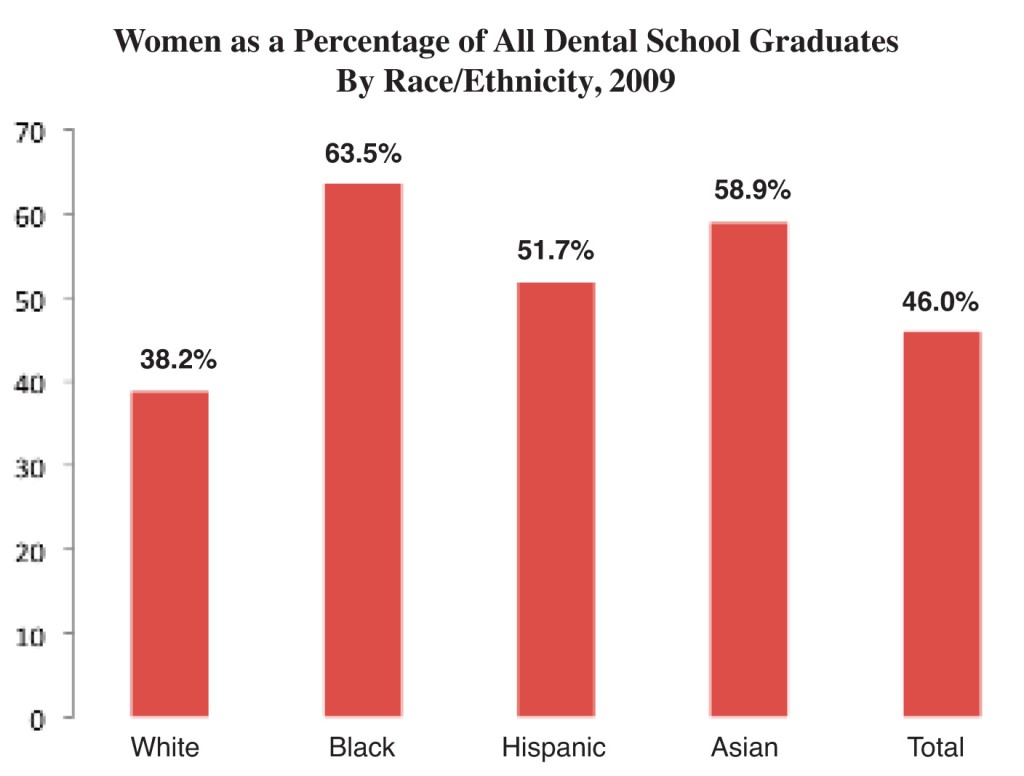Nationwide, men are more likely to enroll and more likely to graduate from dental school than women. During the 2009-10 academic year there were 10,995 men and 9,057 women enrolled in U.S. dental schools.
But when we break down the figures by race and gender, we see the large gender gap in favor of men exists only for whites. Men make up 60.8 percent of all white dental school students. But for African Americans, Hispanics, and Asians, women outnumber men in dental school enrollments. For blacks women make up 59.5 percent of all dental students.
In 2009, men were nearly 54 percent of all dental school graduates. But the gender gap in favor of men exists only for whites. Men made up 61.2 percent of all white dental school graduates. In contrast, black women accounted for 63.5 percent of all African-American graduates.









